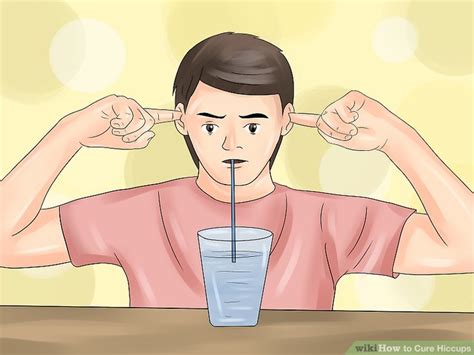Drunk Hiccups? Here's the Cure
Hiccups. That annoying, involuntary spasm of your diaphragm that can strike at any time, but seems particularly fond of making an appearance after a few too many drinks. While a slight hiccup might be a minor annoyance, a prolonged bout of hiccups after a night out can be downright miserable. But fear not, fellow revelers! This comprehensive guide will explore the science behind alcohol-induced hiccups and offer proven methods to banish them quickly and effectively.
Why Does Alcohol Cause Hiccups?
Alcohol's impact on the nervous system is the primary culprit behind those post-drinking hiccups. Alcohol is a known central nervous system depressant. This means it slows down brain activity, affecting the signals sent to various parts of the body, including the diaphragm. The diaphragm's involuntary spasms, characteristic of hiccups, can be triggered by this disruption.
Furthermore, alcohol can irritate the stomach lining and esophagus. This irritation can send signals to the brain, again triggering the diaphragm to spasm. The rapid changes in body temperature and dehydration often associated with alcohol consumption also contribute to hiccup occurrences.
How to Stop Hiccups After Drinking: Tried and True Methods
Several tried-and-true methods can effectively stop alcohol-induced hiccups. These range from simple breathing exercises to more involved techniques. Remember, what works for one person might not work for another, so experimentation may be needed.
1. Breathing Exercises:
- Holding your breath: Try holding your breath for as long as you comfortably can. This can interrupt the hiccup pattern.
- Controlled breathing: Breathe in deeply through your nose, hold for a few seconds, and exhale slowly through your mouth. Repeat several times. This can help regulate your diaphragm.
- Breathing into a paper bag: This is a controversial method, but some find it effective. Caution: This is not recommended for people with underlying respiratory issues. Breathe into a paper bag for a short period, focusing on slowing your breathing.
2. Distraction Techniques:
- Surprise your body: A sudden fright or shock can sometimes interrupt hiccup patterns. A sudden loud noise (but not too loud!) or a startling action might work.
- Focus on something else: Try to engage in a mentally stimulating activity to distract yourself from the hiccups.
3. Simple Physical Maneuvers:
- Drinking cold water: Slowly sipping a glass of ice-cold water can sometimes provide relief. The cold sensation might help reset the diaphragm's rhythm.
- Pulling your tongue: Gently pull your tongue out as far as you can for about 10-15 seconds. This can help to stretch the muscles involved in hiccuping.
- Gargle with water: Gargling with cold water can also help soothe the throat and potentially reduce irritation that could be triggering the hiccups.
4. Other Remedies:
- Squeeze a lemon: The sour taste might shock your system enough to stop the hiccups.
- Swallowing a spoonful of sugar: Similar to the lemon, the sudden change in taste might help.
When to Seek Medical Attention
While most hiccups related to alcohol are temporary and easily managed, persistent hiccups lasting longer than 48 hours warrant a visit to a doctor. Prolonged hiccups can sometimes indicate an underlying medical condition.
Preventing Alcohol-Induced Hiccups
Prevention is always better than cure! While you can't completely eliminate the possibility of hiccups after drinking, you can minimize the risk by:
- Drinking moderately: Avoid excessive alcohol consumption.
- Staying hydrated: Drink plenty of water throughout the evening.
- Eating before drinking: A full stomach can help buffer the effects of alcohol.
- Avoiding carbonated drinks: Carbonated beverages can exacerbate hiccups.
Are There Any Specific Drinks That Trigger Hiccups More Than Others?
While individual reactions vary, carbonated alcoholic beverages seem to be more frequently associated with hiccups. The carbonation can irritate the stomach and esophagus, increasing the likelihood of hiccup onset. However, any type of alcohol consumed in excess can potentially trigger hiccups.
Conclusion
Hiccups after a night of drinking are a common and usually harmless annoyance. By employing these simple techniques and following preventative measures, you can effectively combat these pesky spasms and enjoy your evening without the interruption of persistent hiccups. Remember, if your hiccups persist, it is always best to consult a medical professional.

